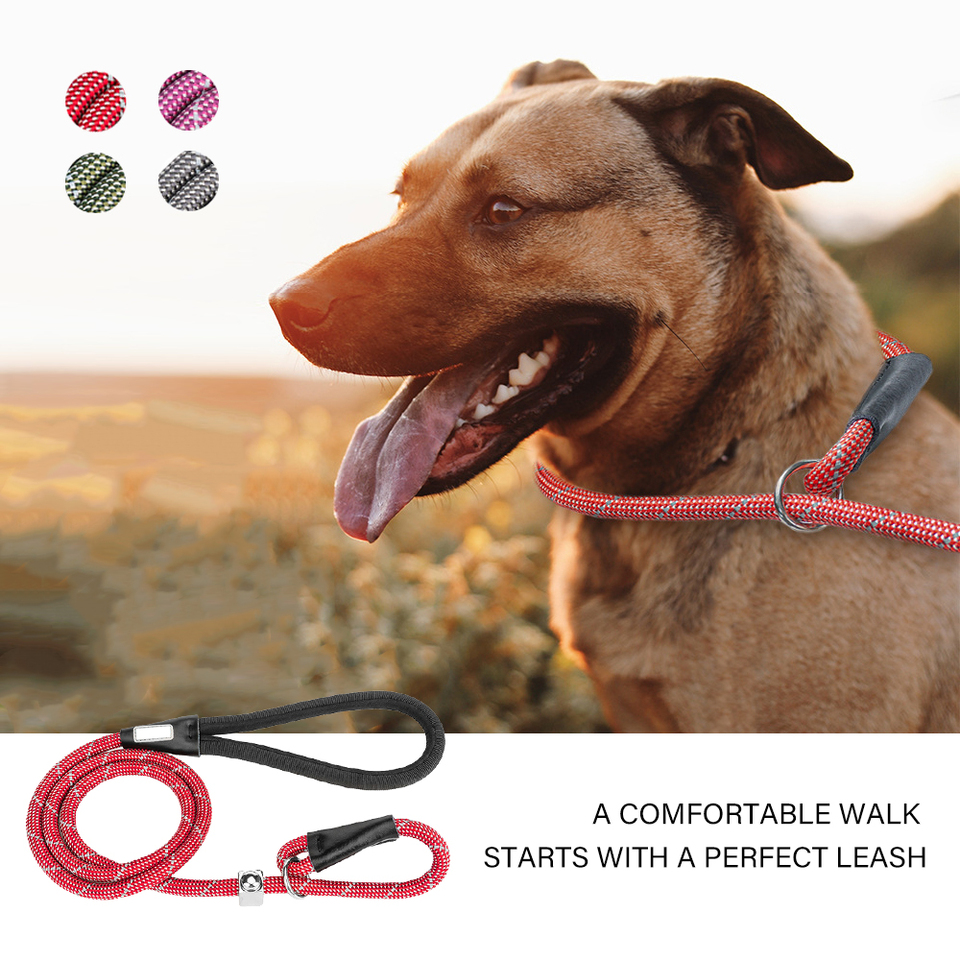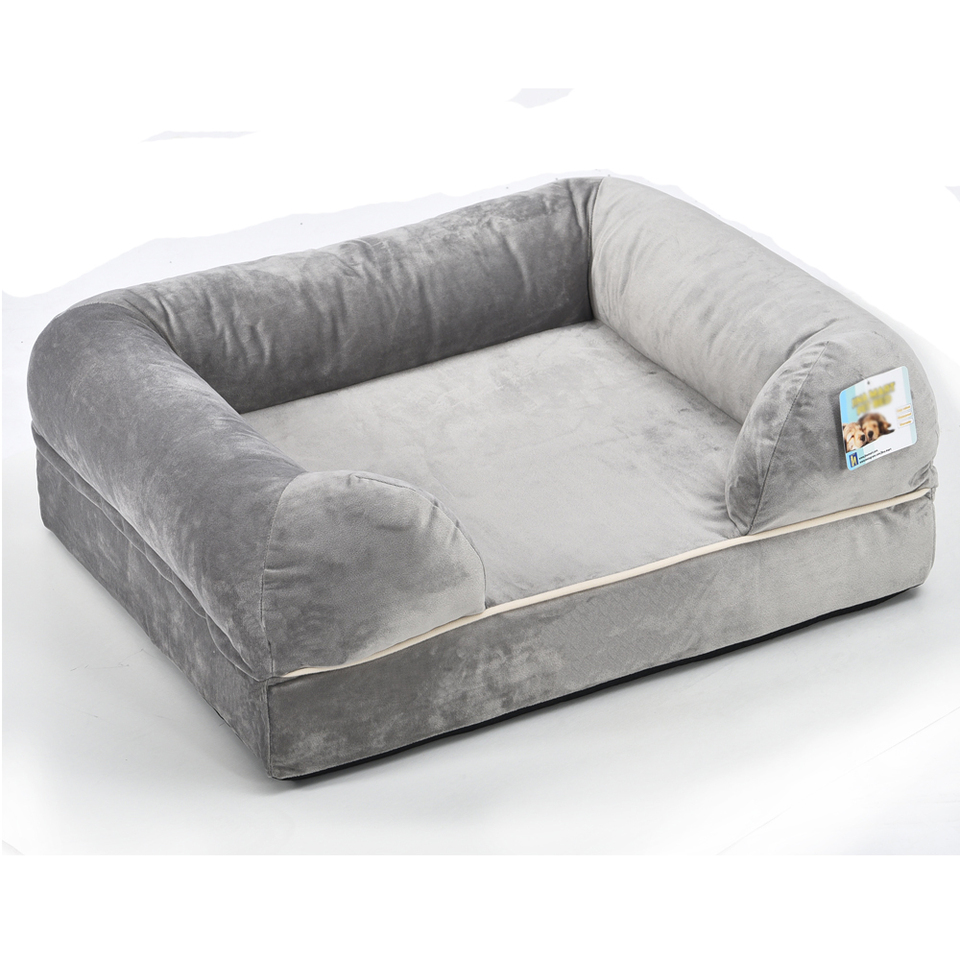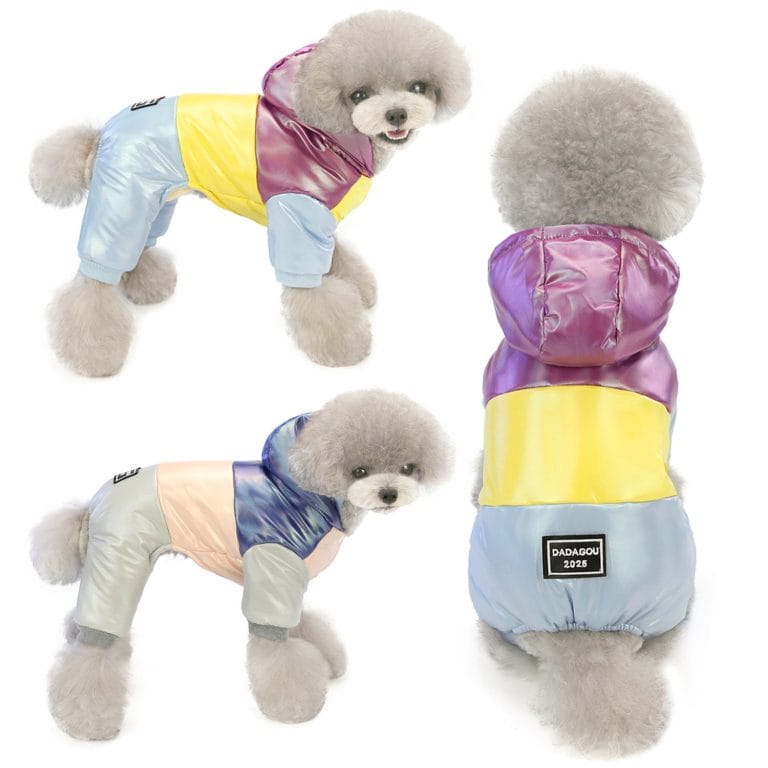Inona no zavatra ilaina amin'ny alika vaovao na saka?
You’re on the hunt for the best rescue dog or cat to adopt. Or you’re waiting to bring a precious pet home from a breeder. Na izany na tsia, it’s time to go shopping so that your new pet will have everything they need from day one. If you’re a first-time pet parent, it can be overwhelming. But by being prepared for all of your pet’s needs, you’ll be able to concentrate on acclimating them to their new environment and begin training. In this article, we’ll provide you with the essential pet supplies you’ll need for a new dog or cat.
Food for a New Dog or Cat
If possible, find out which brand of food your new pet has been eating before you adopted them and buy the same kind. If you are unable to find out what food your pet has been eating, you will want to buy quality food that fits your pet’s life stage. For example, if you are getting a newborn puppy or kitten you will want to get a puppy or kitten food. Keep in mind that new pets may also have food allergies and require a different type of food.
Water and Food Bowls
Pet water and food bowls can be as simple as two stainless steel or ceramic bowls. But if you’re looking for something more elaborate than this, you’ll find it. Pet stores carry everything from elevated bowls to filtered water bowls. And of course, you can always personalize your water and food bowls with your pet’s name.
Leash and Collar
Like water and food bowls, leashes and collars can be personalized and come in many varieties. There are retractable leashes, leashes with poop bag dispensers, leashes with padded handles, reflective collars, and LED light collars. Find what works with your pet and don’t feel bad about having multiple leashes. Different leashes can serve different purposes and it’s always a smart idea to have an extra leash on hand. Slip leashes are excellent for this purpose as you can simply slip them over your pet’s head if there’s not a collar. It’s a great backup to have.

Pet Identification Tag and Microchip
These might seem like things you can put off and take care of whenever you get around to it but that is not the case. According to American Humane, almost 10 million pets are lost each year.1 Make sure to update your pet’s ID tag every time your contact information changes. Ankoatry ny, if the shelter or breeder where you got your pet from does not microchip your dog or cat, you should have it done by your veterinarian. You never know when accidents or emergencies will happen and you’ll want to protect your new pet immediately.

Pet First Aid Kit
You can buy a ready-made kit for your pet or create one yourself. Na izany na tsia, a good pet first aid kit should have at a minimum the following items:
Sterile gauze pads
Bandages
Adhesive tap
Antiseptic wipes
Antibiotic ointment
Cotton balls
Hydrogen peroxide
Tweezers
Digital thermometer
Optionally a muzzle
Your pet’s bed is their safe spot to relax and sleep. It should be comfortable, and supportive, and enable them to stretch out. You will likely go through several beds in your pet’s lifetime and once a dog becomes older the bed should provide the necessary cushioning for its joints.

Treats and Toys
What’s a precious new pet without treats to enjoy and toys to occupy them? The choices are unlimited but try focusing on treats and toys that serve a purpose—health, training, or stimulation. Keep in mind that overfeeding a pet can lead to obesity which carries health risks like diabetes mellitus, heart disease, hypertension, and even cancer.
A scratching post for a cat is a necessity. Be sure to buy one that is tall enough for your cat to stand on his hind legs and stretch without exceeding the top. KOA, check to see that the scratching post has a heavy enough base so that it won’t tip over. If you have more than one cat, buy each of them its scratching post.
Pet Grooming Brush
Grooming or brushing your pet’s coat daily removes dead hair and keeps their fur from getting tangled or matted. Regular brushings also help lessen the fur and dander in your home. When you visit a pet store or go online, you’ll find everything from wire brushes to bristle brushes to de-shedding brushes and even glove brushes.
Toothbrush
A lot of pets don’t like to have their teeth brushed. As a result, some pet owners become lax in keeping up the oral hygiene of their pets. This can become detrimental to your pet’s health and turn into a costly visit to the veterinarian’s office. In addition to periodic professional dental cleanings, you should ideally brush your pet’s teeth every day, and at a minimum three times a week. Pet stores sell special toothpaste for cats and dogs that make the taste more desirable to them. Some pet owners find it easier to brush their dog or cat’s teeth with a finger brush rather than a traditionally shaped toothbrush.
Nail Trimmer
Many pets don’t like their paws being touched and consequently nail trimming can become a chore for pet owners. That said, it’s important to trim your pet’s nails every three to four weeks. For pet owners, there is always the fear of cutting the animal quickly where blood vessels and nerve endings are located. Doing this will cause the nail to bleed. Styptic powder is a good product to have on hand if this occurs. A good way to avoid cutting the quick is to cut your pet’s nails a little bit at a time.
Flea Preventative
Don’t let your pet and your home get invaded by fleas. There are many options available to prevent fleas including flea collars, monthly chewable, or medications that can keep your pet flea-free for up to six months. Ask your veterinarian for their input on what’s best for your new pet.
Stain and Odor Remover
An effective stain and odor remover is a godsend and a lifesaver for any pet owner. Accidents, unpleasant smells, and everyday dirt are unavoidable aspects of owning a pet. Whichever stain and odor remover you choose, make sure it is safe for your pet and won’t damage the surface that it is applied. Enzyme-based cleaners are extremely popular with pet owners.
Poop Disposal
If you have a yard for your dog, a pooper scooper is ideal for collecting and disposing of waste. Unless your neighborhood provides poop bag dispensaries, you will need to buy poop bags to clean up after your dog on walks. If you’re welcoming a new cat into your home, you’ll need a litter box. Place the box in a quiet spot that offers some privacy. Cleaning your cat’s litter box every day can be time-consuming, but it’s the best way to prevent odors and keep waste from building up. It also enables you to keep an eye on your pet’s health, as irregular bathroom habits can be the first sign of illness.
There’s one last thing you should have in place for your new pet at the start of their journey: pet insurance. Pets Best Insurance offers a wide range of pet health insurance options for cats and dogs, including optional wellness coverage for things like spaying or neutering.




Installed the 68winapp on my phone and gotta say, it’s pretty smooth. Quick access to all the games, which is a win in my book! Definitely recommend downloading.
Gave 658bet2 a shot and gotta say, I was pleasantly surprised. Solid site, decent variety of games. Might become my new go-to! Check it out at: 658bet2
Soy cliente fiel de WinonaCasino. La atención personalizada y la variedad de juegos me mantienen enganchado. It’s very good here!. winonacasino
Hey, has anyone tried wc777comgame? Thinking about giving it a shot. Seems like they have some decent games. Anyone have any experience with them? Just wanna make sure it’s legit before I deposit anything. Check it out yourself here: wc777comgame
Been playing on neu88net for a while now. Pretty decent, honestly. Game selection is solid and I haven’t had any major issues withdrawing. Could be better, but it’s worth checking out. neu88net
[8308]Taya365: Best Online Casino in Philippines | Easy Login, hisoratra anarana, App Download & Premium Slots Experience Taya365, the best online casino in Philippines! Quick Taya365 login & register to play premium Taya365 slots. Get the Taya365 app download for 24/7 gaming action. visit: taya365